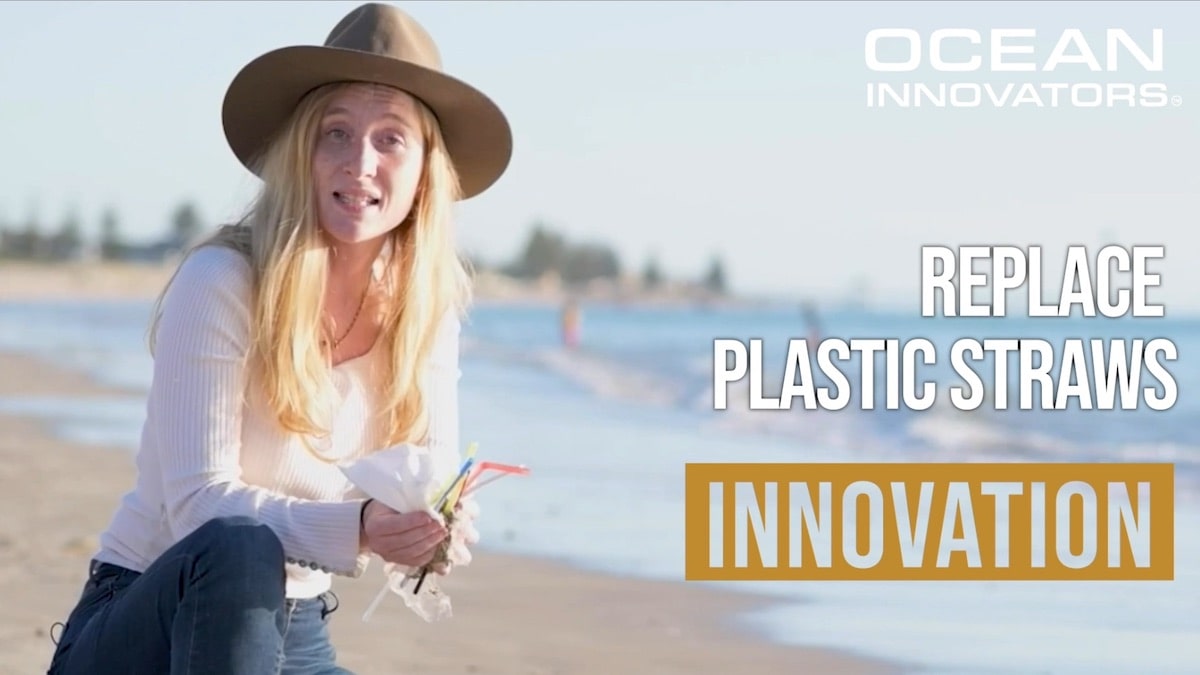Did you know that Australians consume 10 million straws per day? Plastic straws end up in oceans and affect marine ecosystems. How can we stop plastic pollution from entering our oceans in the first place? Mister RYE has a vision for a future without plastics. How are they are tackling this problem directly, you may ask? By evaluating the lifecycle of plastic straws from start to finish and making key changes to the process. So, what exactly is Mister RYE offering?
The story of Mister RYE
Mister RYE is the first 100% Australian sourced and produced sustainable drinking straw. They work directly with South Australian organic farmers and use the by-product of cereal rye crops to replace imported plastic straws. Mister RYE was founded after co-founder Marion Vigot realised to what extent plastics permanently damage the environment. Plastics have seeped into the daily lives of people. We consume micro-particles of plastics through food without even knowing it. Additionally, plastic straws are one of the top 10 items that litter beaches. Seeing that most straws are made in Asia and imported because of their cheaper cost, there was a real need for an Australian solution that would be better for the environment.
What is Mister RYE’s mission?
Firstly, the mission of Mister RYE is to create a local and traceable alternative to plastic straws. Moreover, by working directly with several local farmers, Mister RYE adds a new income to farmers and promotes employment in rural areas of South Australia. The project started with a collaboration with two farming families who grow organic crops and meat in South Australia, in the Mallee region, and in the Riverland. They have worked together with Mister RYE to find suitable plants and optimise the straw-making process.
Secondly, the main objective is to provide a local solution to businesses that already have a sustainable mindset and evaluate the life-cycle of products from start to finish. Customers want a local and safe alternative to plastic straws. Mister RYE can provide a traceable, 100% locally made, and sustainable solution. The product directly aligns with United Nations Sustainable Development Goal number 12: Responsible consumption and production. By providing an eco-friendly alternative which focuses on a circular production cycle, tonnes of plastic straws will be spared from polluting oceans and compromising marine wildlife.
The revolutionary rye straws
Mister RYE’s straws are the by-product of cereal rye crops. After the farmers harvest the grains, the top part of the plant, Mister RYE harvests the stem of the plant using an old harvester from the 1960s. Then, each individual stem is cut between the nodes, as the stems are naturally hollow between consecutive nodes. They clean and sterilise the straws, and a Mister RYE straw is ready to use!
The target market is Australia, in line with Mister RYE’s mission of staying local, hence, avoiding international transportation. Mister RYE aims to use existing resources in Australia to supply the market. They are considering the possibility of expanding the business model with farmers from other countries. This would empower them to use their local resources to replace plastic straws by rye straws.
How to help Mister RYE
The straws are completely manufactured by hand, which naturally translates to a higher production cost as compared to the highly industrialised manufacturing process of imported plastic straws. However, the young start-up is currently prototyping a new machine to automate the fabrication process. Not only would this help scale up production but it would also reduce the cost of production and increase the benefit to farmers. They need investment in the custom-made machine which is not available on the market. The advent of this new machine would reduce the cost of production and allow Mister RYE to supply straws to many cafes and restaurants in Australia.
Marion Vigot leaves us with a key message: “Always look behind what you buy”. She advocates for researching products and falling into marketing ploys. “Support locally made products and look at the whole production cycle from start to disposal, not only the final product you buy in a store”.
You can follow the wonderful work of Marion. Check her Website and on their social media: Instagram, Twitter, Facebook, and LinkedIn.
